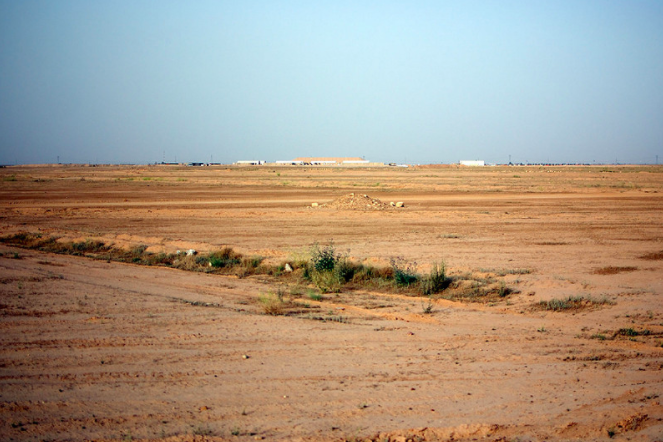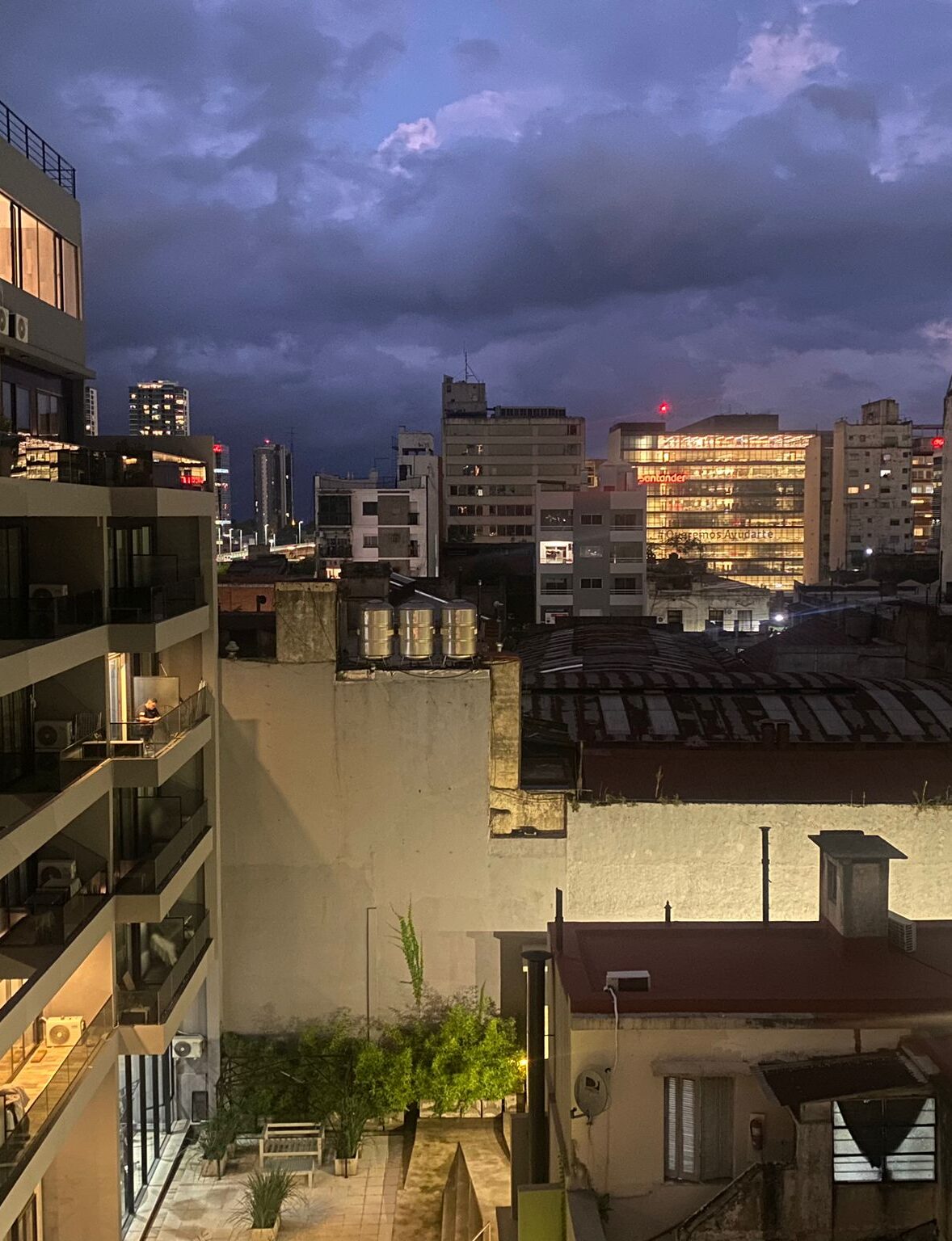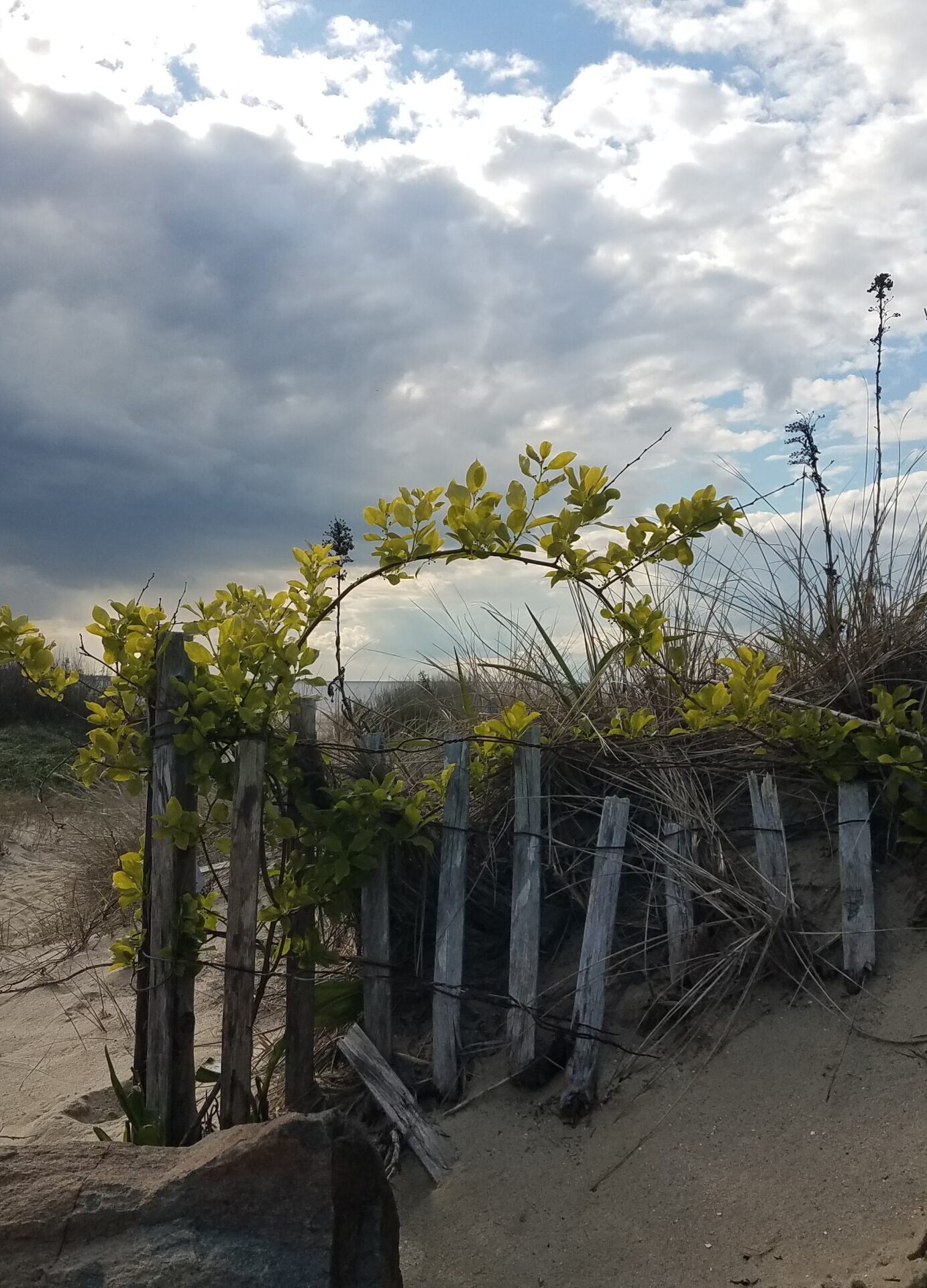“Debris, left.”
“Yes, ma’am,” I answered, clicking my turret around. The truck swung wide right. On the side of the road, the debris was nothing more than a pile of rocks and broken up concrete. Two years earlier, two hundred miles away, that might have warranted a bit of anxiety. The headphones pressed to my ears were silent as the convoy waited for an answer. I flipped the switch down to announce my verdict. “Clear, left.”
Lieutenant Richards was a new addition to our truck, a nervous woman. Her eyes bounced from the road to the radio to the screen before her, which displayed our route through eastern Iraq.
From the gunner’s turret I could see the expanse of a small town. Flat roofed cement buildings stretched north and south on an invisible line between the city and an expanse of fields and date orchards. Trash stuck in thorn bushes and filled ditches on both sides of the road. The view was greener than our convoy a month before, greener even than our trip west two days earlier. Warmer too. Three men sat under a grove of eucalyptus trees at the side of the road as we entered the town. Packed dirt around them sprouted tiny purple flowers.
Our route took us through the middle of town, through the middle of the market. Trucks packed with tires and sheep pulled onto the shoulder. Men drinking chai at storefront cafes watched us roll past. Kids waved, hoping for candy that we knew better than to throw. No one seemed to notice as I shifted my weapon back and forth across their lives.
Lieutenant Richards stayed quiet.
Passing a thick grove of palm trees, we exited the town. Desert stretched before us, flat and uninhabited with bits of green breaking up the mostly barren landscape – the Iraq everyone pictured in the States.
Lieutenant Richards would take over the team in two weeks. Her people would take over our role with the Iraqi Army, would move into our rooms, drive our trucks, feed our dog, and we would go home, even if Iraq felt a little like home too. It’s hard to trust someone you don’t know with your home.
“Woman on the right,” the lieutenant said.
I scanned the road. Foot traffic had diminished as we neared the edge of town. A group of boys carried heavy loads: bags of rice, tires, paper wrapped packages. Before us, I saw nothing. Desert left and right, a rusted suburban pulled onto the shoulder, but no women. Then, a dark form approached in the distance.
“Do you mean cow?” I asked.
“Shit. Oops.” The headphones fell silent before she said, “Cow on the right.”
The desert unfurled around us as we picked up speed and left the little town behind.




